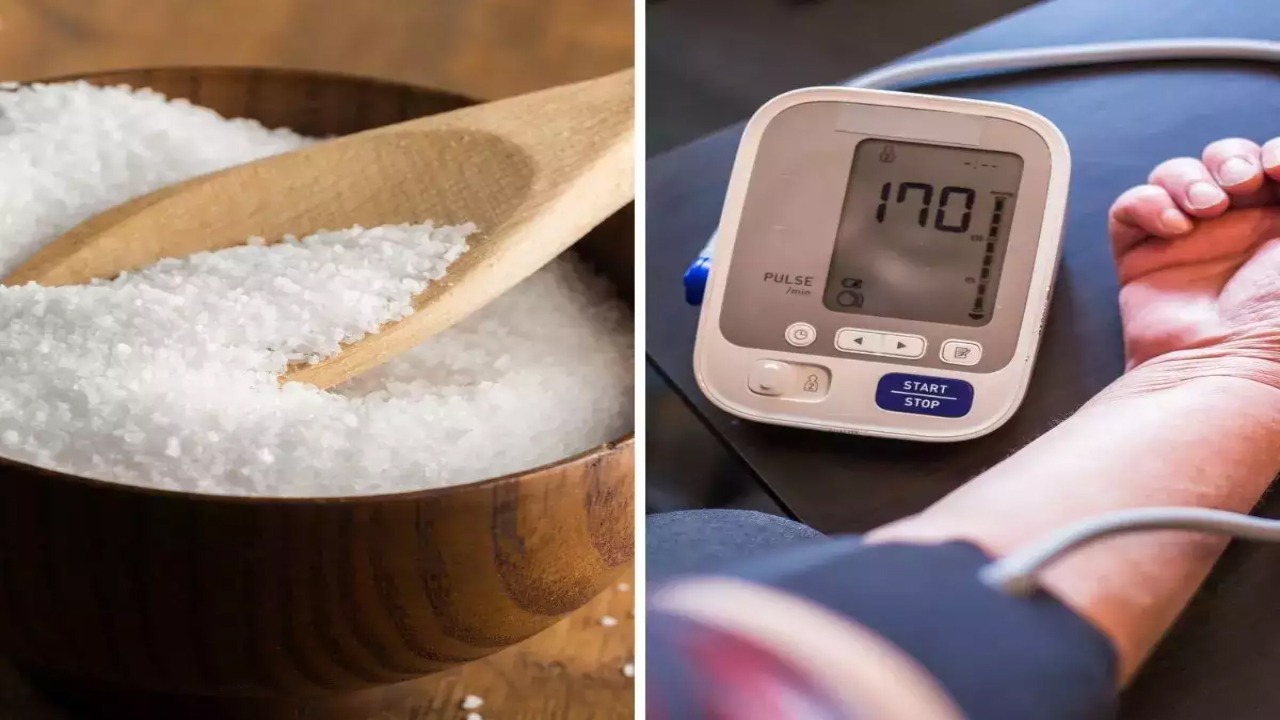According to the World Health Organization (WHO), cardiovascular diseases (CVDs) are the leading cause of death globally, accounting for approximately 17.9 million deaths annually. A significant contributor to CVDs is high blood pressure, or hypertension, which is exacerbated by excessive salt intake.
The Salty Culprit: Unraveling the Impact of Salt on Heart Health
Salt, a common seasoning that enhances flavours and is a staple in many cuisines, hides a darker side when it comes to heart health. While sodium is essential for bodily functions, excessive salt consumption has been linked to a range of heart problems. According to the study conducted In India, by the Public Health Foundation of India (PHFI) estimated that nearly 25% of all heart-related deaths could be prevented by reducing salt intake.
The Sodium Connection: How Salt Affects the Heart
Sodium, a component of salt, plays a pivotal role in maintaining fluid balance, nerve function, and muscle contractions in the body. However, an excess of sodium can lead to high blood pressure, a condition known as hypertension. High blood pressure places strain on the blood vessels, forcing the heart to work harder to pump blood, which over time, can weaken the heart muscles and increase the risk of heart diseases.
The Salt-Heart Relationship: Key Effects and Consequences
1. Hypertension: High salt intake is a leading cause of hypertension. Excessive sodium in the bloodstream draws water, increasing blood volume and subsequently raising blood pressure. This puts stress on the arteries and the heart, increasing the risk of heart attacks, strokes, and other cardiovascular diseases.
2. Atherosclerosis: High salt consumption is associated with the development of atherosclerosis, a condition where fatty deposits build up on the walls of arteries, narrowing them and obstructing blood flow. This restricts the supply of oxygen-rich blood to the heart and other organs, leading to potentially fatal consequences.
3. Heart Failure: Consuming too much salt can lead to fluid retention in the body. In heart failure, a weakened heart struggles to pump effectively, causing fluid buildup in the lungs and other tissues. High salt intake exacerbates this condition by promoting fluid retention, and worsening symptoms and outcomes.
4. Stroke: Hypertension, often induced by excess salt consumption, is a major risk factor for strokes. High blood pressure weakens blood vessels and can lead to the rupture of an artery in the brain, causing a stroke.
The Role of Hidden Sodium: Beyond the Desi food
Reducing visible table salt is only part of the battle. A significant portion of sodium intake comes from processed and packaged foods, fast food, and restaurant dishes. These hidden sources of sodium can easily exceed recommended daily limits. Soda, processed meats, snack foods, and even seemingly healthy options like salads can contribute to elevated sodium levels.
Conclusion: A Sneaky-Salty Situation That Demands Attention
While salt is an integral part of our diets, moderation is crucial. A survey recommends a maximum daily intake of 2,300 milligrams of sodium, with an ideal limit of 1,500 milligrams for most adults, especially those with hypertension. Being mindful of sodium content in foods, reading nutrition labels, and opting for fresh, whole foods can significantly reduce sodium intake and its impact on heart health.
In the quest for a healthier heart, understanding the intricate relationship between salt and cardiovascular well-being is essential. By making conscious choices to limit sodium intake, individuals can take proactive steps towards protecting their hearts and ensuring a longer, more vibrant life.

 Salt, a common seasoning that enhances flavours and is a staple in many cuisines, hides a darker side when it comes to heart health. Excess salt consumption is linked to about 62% of strokes and 49% of coronary heart disease cases globally. According to the study conducted In India, by the Public Health Foundation of India (PHFI) estimated that nearly 25% of all heart-related deaths could be prevented by reducing salt intake.
Salt, a common seasoning that enhances flavours and is a staple in many cuisines, hides a darker side when it comes to heart health. Excess salt consumption is linked to about 62% of strokes and 49% of coronary heart disease cases globally. According to the study conducted In India, by the Public Health Foundation of India (PHFI) estimated that nearly 25% of all heart-related deaths could be prevented by reducing salt intake.









.jpeg)




.jpeg)

.jpg)













